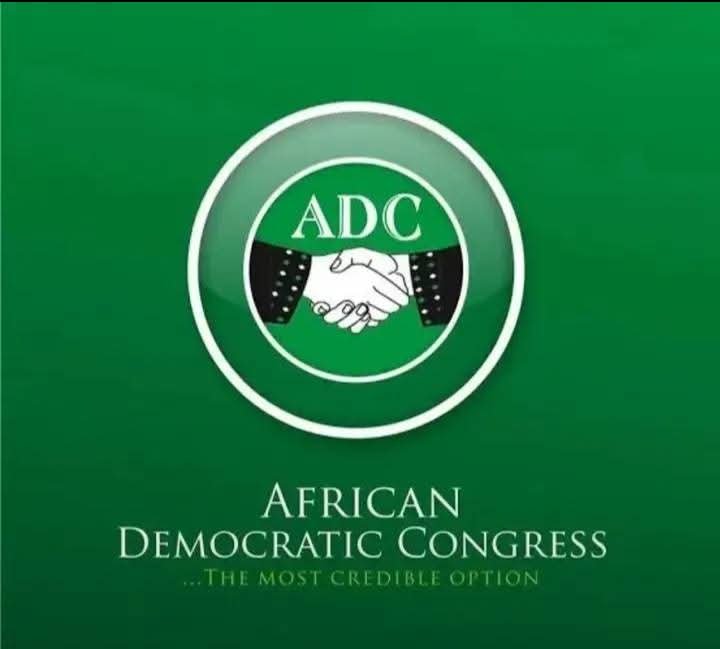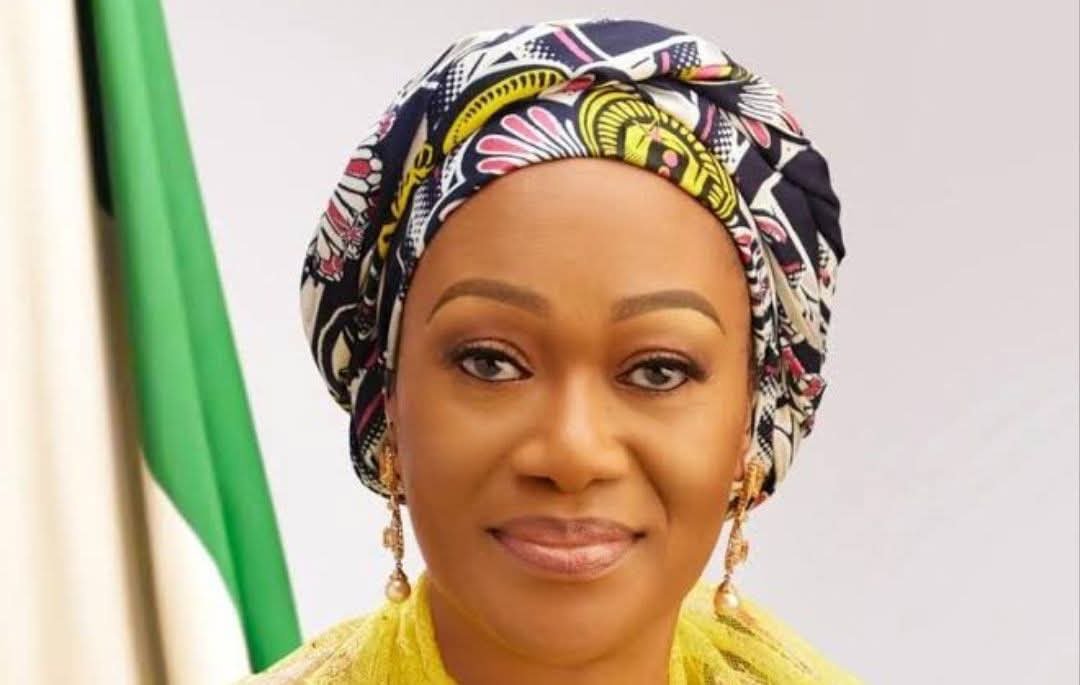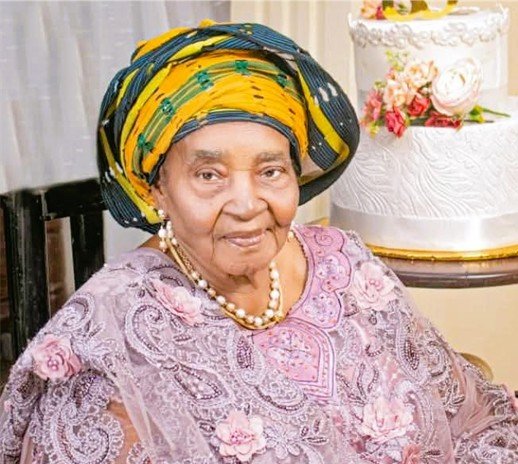
The African Democratic Congress (ADC), in coalition with the Citizens Coalition, has risen from the margins of Nigeria’s political map to the center of national debate within an astonishingly short time. Its growth has not been gradual but volcanic, erupting into the consciousness of the electorate and unsettling the calculations of the ruling All Progressives Congress (APC).
What is most remarkable is not the number of seats it has yet won, but the fear it has inspired in its rivals. Instead of concentrating on the heavy burden of governance, the APC has begun to spend valuable energy addressing the challenge posed by this new coalition. The recently concluded off-season elections across more than fifteen states provided an imperfect stage for ADC to showcase its strength.
Though the results did not translate into parliamentary victories, they offered a clear benchmark for future performance, proving that the coalition has planted seeds that could blossom into significant electoral gains when the 2027 general elections arrive.
ADC’s emergence has been accompanied by an unusual wave of popularity, striking not only in urban centers but also in conversations across civil society, universities, town halls, and informal gatherings. In less than two months of active coalition politics, the party has managed to draw the kind of attention that older opposition groups took years to attract.
The reality is that the off-season elections in question had long been programmed before the formation of the coalition, and by then the candidacies that flew under the platform of the ADC had already crystallized. These were men and women who had secured the party’s flag in the natural course of party primaries, well before the coalition was forged as an ideological counterweight to the dominant parties.
To misinterpret their eventual struggles as a rejection of the coalition is therefore a grave misreading of history. Their candidacy was not birthed within the coalition but within the traditional ADC structure, and while they were not in themselves unworthy aspirants, the timing and sequence of events meant that they could not embody the full force of the coalition spirit.
This is why it would amount to a distortion, and indeed a disservice, to describe those outcomes as a referendum on the coalition’s vitality. The ADC, now fused into a broad-based alliance, is not a feeble instrument but a flaming arsenal of democratic renewal whose fire is already scorching the foundations of a decadent ruling elite.
The ruling APC, with its diabolic and dehumanizing leadership, has long thrived by muscling the weak and draining the lifeblood of ordinary Nigerians. Against such tyranny, the ADC’s nationwide acceptance is growing, its coalition credentials strengthening, and its momentum unmistakable. To confuse temporary electoral accidents with the enduring architecture of victory is to mistake shadows for substance
This sudden surge in recognition functions as a warning signal to established power blocs, suggesting that a restless electorate is ready to test a new alternative. Popularity of this nature is often the first symptom of political transformation, for it reflects the people’s appetite for voices that embody freshness and authenticity. Such resonance is difficult to manufacture and usually indicates that society is primed for change.
For years, smaller parties existed in Nigeria without significant acknowledgment from the ruling class. They were either ignored outright or treated as footnotes in the electoral process. ADC has broken that pattern decisively. The APC, which once reserved its criticisms solely for the Peoples Democratic Party (PDP), now repeatedly mentions ADC as a potential challenger. Each time this occurs, the ruling party inadvertently amplifies ADC’s name, elevating it into the heart of national political discussions. This shift from deliberate silence to reluctant centrality is not trivial, it marks the beginning of ADC’s transformation from the periphery of politics to a recognized force in the nation’s democratic imagination.
The August by-elections, though modest in outcome, served as a baptism of fire for ADC. Spanning more than fifteen states, the contests gave the coalition a valuable opportunity to test its structures, field candidates, and observe firsthand the strengths and deficiencies of its internal machinery.
While no seats were ultimately secured, participation itself carried deep significance. It demonstrated that ADC is not content with mere rhetoric but is prepared to stake its claim on the ballot. Every great political movement requires such testing grounds, and the coalition’s willingness to enter the electoral arena, regardless of outcome, speaks of seriousness, resilience, and long-term vision.
Political success rarely materializes overnight, and history provides an instructive lens. When the APC was formed in 2013, its first major outing was in Anambra State, where it secured only a third-place finish. Few observers at the time believed that this same party would sweep into national power within two years. ADC now stands at a similar juncture of history. The comparison is not contrived but instructive: a weak showing in early elections does not necessarily translate into eventual failure. Rather, it often builds the resilience, discipline, and hard-earned experience needed for larger triumphs ahead. If APC could grow from humble beginnings into a national powerhouse, then ADC’s current setbacks may well prove to be indispensable stepping stones. And it has more glowing prospects than APC had at its early stage of formation.
The decision to align with the Citizens Coalition has redefined ADC’s momentum and injected a new form of dynamism. It has provided fresh hands, new organizational networks, and a wider base of supporters, particularly among professionals, entrepreneurs, and reform-minded youth.
Coalitions are rarely easy to manage, yet they can be powerful engines of momentum when unified by a shared purpose. This new alliance suggests that ADC is not only expanding its organizational strength but also learning the intricate art of building bridges, an indispensable skill for any political party aspiring to govern a country as diverse and pluralistic as Nigeria.
Beyond the noise of urban politics, ADC’s quiet growth at the grassroots level is perhaps its most promising sign. In rural communities where governance often feels remote and the dividends of democracy remain elusive, residents are beginning to associate ADC with hope and possibility.
Party agents and sympathizers have managed to spark conversations around dignity, fairness, and accountability in places long neglected by the mainstream. History shows that elections in Nigeria are often won not in the capital cities but in the towns and villages where turnout is high and loyalties are deep. This awakening at the grassroots signals the formation of a sturdy foundation on which ADC can build enduring influence.
One of ADC’s greatest advantages is its capacity to resonate with Nigeria’s young population. More than half of registered voters are under the age of thirty-five, and most are disillusioned with the traditional parties. ADC’s language of change, renewal, and responsive governance resonates strongly with this demographic, which has long felt excluded from decision-making. Social movements across the globe, from South Africa to Latin America, have demonstrated that when the youth mobilize behind a cause, they can redefine national politics and tilt the balance of power. ADC’s growing status as a youth magnet positions it to capture this demographic dividend and transform it into tangible electoral numbers.
The results of the August elections, though modest, should not be dismissed. They provide a crucial benchmark by which ADC can measure its progress and refine its strategy. Every successful organization requires markers that trace its journey, and for ADC, these elections highlight both its strengths and areas of vulnerability. They expose regions where voter education is needed, where organizational discipline must be deepened, and where resources must be redirected. Such lessons are invaluable, for they serve as the compass guiding the coalition toward greater preparedness for the 2027 polls. What may appear as failure in the eyes of some observers could, in fact, be the raw material of future victory.
Nothing reveals the strength of an opposition more clearly than the fear it inspires in those who hold power. Already, APC leaders and spokespersons expend significant energy responding to ADC, a practice they never afforded to minor parties in the past. This defensive posture suggests more than mere recognition as it conveys a sense of anxiety. The ruling party understands that voter fatigue is real and that an increasingly restless electorate is actively scanning for alternatives. ADC, by capturing national attention, has become the looming presence that unsettles the corridors of power.
ADC’s forthright response to the irregularities witnessed during the by-elections has further elevated its credibility. By speaking boldly against vote-buying, ballot box snatching, and the technological lapses of the BVAS system, the coalition has positioned itself as a principled defender of democracy. Such a stance distinguishes it from older parties often accused of benefiting from these very irregularities. In calling for electoral reform, ADC not only amplifies the frustrations of ordinary Nigerians but also casts itself as the moral conscience of the political system, offering a vision of elections rooted in transparency and fairness.
Every electoral cycle in Nigeria generates a dominant narrative, and ADC has already succeeded in inserting itself into the storyline for 2027. Journalists, analysts, and political commentators now ask not only what PDP will do but also how ADC will shape the outcomes. This shift is important because politics is as much about perception as it is about numbers. Once a party is recognized as a genuine contender, it begins to attract alliances, investments, and eventually votes. By reshaping the conversation so early, ADC ensures that it is no longer a marginal voice but part of the central drama of Nigeria’s democratic future.
ADC has also begun to attract Nigerians who wish to register their disillusionment with the political establishment. In every democracy, protest votes play a crucial role. They symbolize dissatisfaction and create the conditions for new alternatives to emerge. Many voters, weary of a ruling party they feel has drifted from their concerns, are now looking at ADC as a safe and credible channel to express dissent. Even when such votes do not immediately secure electoral victories, they build momentum and gradually shift electoral arithmetic in favor of the emerging opposition.
Older opposition parties such as the PDP and Labour Party remain weighed down by internal conflicts, factional rivalries, and leadership crises. ADC, in contrast, presents itself as a clean slate, free from many of these encumbrances. This comparative advantage cannot be underestimated. In a political environment where disunity has often destroyed the chances of opposition blocs, ADC’s present state of relative harmony and discipline provides it with a strategic edge. If this cohesion is carefully preserved, the coalition’s reputation for focus and collective discipline could become its most persuasive argument before the electorate.
Media coverage is the lifeblood of modern political competition, and in recent weeks ADC has enjoyed widening attention, with its statements, criticisms, and even its electoral setbacks making headlines across national newspapers and digital platforms. While some of this coverage has been critical, the very fact of being discussed places the coalition before millions who might otherwise have remained unaware of its existence. Visibility breeds recognition, and recognition, when sustained with a coherent message and strategic planning, breeds momentum and eventually political traction.
Perhaps the most inspiring element of ADC’s rise is its patience and long-term perspective. The coalition has not promised sudden miracles but has consistently framed its journey as a gradual transformation built on time and endurance. It views the off-season elections not as a final verdict but as a rehearsal for the larger battle of 2027. This deliberate patience reveals a maturity often lacking in young political parties. With strategic planning, grassroots mobilization, and coalition building, ADC is laying the groundwork for what could evolve into one of Nigeria’s most remarkable political transformations. In the story of Nigeria’s democracy, its emergence is not simply another episode but a prelude to a possible new era.
A party that aspires to national victory must build its foundation not merely on slogans but on a deliberate fusion of ideas, people, and strategic vision. The African Democratic Congress, in its present trajectory, embodies the rare capacity to harmonize diverse social forces into a coherent and disciplined movement. This is not victory conceived as chance, but victory cultivated as a science hrough conscious engagement with communities, measured policies that resonate with citizens, and the patient weaving of political structures that can endure turbulence. True dominance is not seized in a single campaign cycle; it is fashioned through an architecture of resilience that positions the party as the natural custodian of the people’s mandate.
National dominance is never the result of size alone, but of influence that penetrates the conscience of a people. For the ADC, the path to such preeminence lies in becoming the interpreter of the citizens’ yearnings, the vessel through which their aspirations are translated into concrete governance. A victorious party is not one that merely gathers votes but one that carries the moral legitimacy of representation. To this end, the ADC must distinguish itself as the national conscience by standing above sectarian rivalries, ethnic fragmentations, or short-term inducements, anchoring its quest for victory in a moral high ground that inspires trust and loyalty. Dominance that is rooted in trust becomes self-sustaining, because a people will defend the political house in which they feel their dignity is preserved.
Beyond electoral contests, national dominance requires the shaping of political culture. A victorious ADC must cultivate in citizens not just the desire to vote but the conviction to participate, to defend democracy, and to reject the politics of predation. When a party succeeds in raising the consciousness of its citizens to such heights, its dominance transcends ballots and becomes embedded in the civic fabric of the nation. Such an achievement is the very essence of historical leadership, for it ensures continuity across generations and redefines politics as a noble pursuit rather than a contest of appetites.
A decisive pathway to national victory for the ADC lies in its ability to craft a grand narrative of generational renewal, positioning itself as the authentic vessel of a new political era. Unlike formations weighed down by legacy struggles or entrenched patronage systems, the ADC can cast itself as the untainted platform where the aspirations of youth, women, professionals, and marginalized groups converge. This strategic framing not only distinguishes the party from older, fatigued political structures but also constructs a vision of Nigeria where governance is redefined by competence, ethical leadership, and inclusive participation. Such a narrative has the potency to rally the disillusioned electorate, translating their yearning for change into electoral energy and organizational dominance.
Equally, geopolitical reconfiguration presents the ADC with an opportunity to outmaneuver conventional rivals. By advancing a deliberate campaign architecture that balances ethnic sensibilities with national cohesion, the party can transcend the regional stronghold politics that has long crippled Nigeria’s democratic evolution. A disciplined coalition strategy, anchored in strategic alliances, calibrated power-sharing arrangements, and culturally sensitive messaging that would enable the ADC to project itself as a truly pan-Nigerian movement. This deliberate widening of its national footprint would not only consolidate its moral legitimacy but also provide the numerical strength required for dominance at the ballot box.
The African Democratic Congress must now move beyond episodic engagements and translate its reformist ideals into a coherent national force capable of reshaping Nigeria’s political destiny. This requires an unyielding commitment to discipline, a deliberate cultivation of intellectual depth, and a readiness to outgrow the limitations of regionalism in pursuit of national ascendancy. If the party can hold firm to these principles, it will not only expand its political footprint but also emerge as the credible alternative power bloc that can lead Nigeria toward a future defined by stability, equity, and purposeful governance.
Nigeria stands today at a turning point, where its destiny calls for bold imagination and new political vigor. The African Democratic Congress (ADC) emerges not as a peripheral voice, but as a credible national force capable of breaking the old order of recycled dominance. As citizens continue to yearn for honesty, efficiency, and renewal, ADC carries the promise of a transformative covenant with the people. Its ideals are not merely slogans, but guiding convictions anchored in integrity, innovation, and inclusiveness. What we seek is not another fleeting political experiment, but the shaping of a national movement powerful enough to secure victory at the polls and establish enduring dominance in governance.


